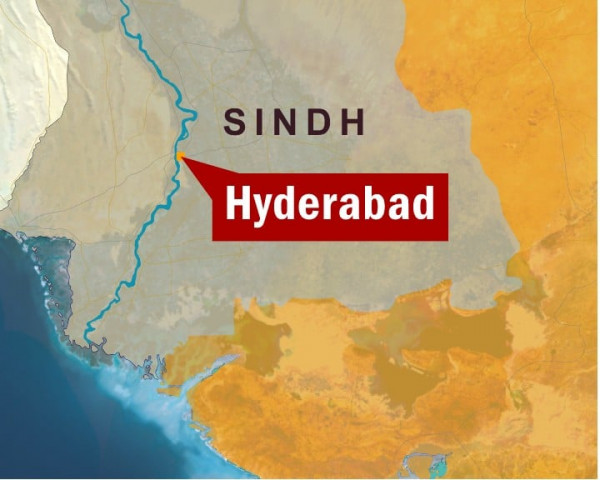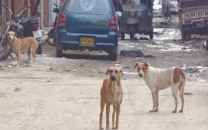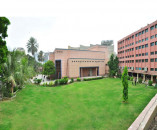As the Tidal Link grows, so do Sindh’s troubles
Seawater is flowing into a major drain at the coast, flooding surrounding areas with saline water.

Instead of depositing sewage and waste into the sea, the Tidal Link at Badin is collecting seawater that is seeping into the land.
The Left Bank Outfall Drain (LBOD) is a winding drain that begins at Ghotki at the top of Sindh and travels all the way down to the sea at Badin, collecting sewerage as it goes. The drain has earned many different names as it journeys to the sea through many districts.
The final stretch that drains into the sea is known as the Tidal Link. Recently, however, a fault in the design of the link has led to a backwash of seawater into the drain, widening and deepening the originally 42-kilometre Tidal Link. The change in the drain has led to flooding and devastation all along the link, causing sea intrusion and salinity in underground water. An ongoing five-year study, funded by the World Bank, could help avert further damage.
The issue came up at a workshop organised by the Louis Berger Group, consultants of the Sindh Irrigation and Drainage Authority’s (SIDA) Water Sector Improvement Plan (WSIP), on Thursday.
“The original width of the link - 92 feet - has now expanded to nearly 1,100 feet,” said Ghulam Rasool Keerio, an environment consultant for the group. “The 17-foot depth has increased to 70 feet.” The link was meant to drain into the sea at the Shah Samdo Creek.
In 2006, a World Bank inspection panel completed a report that confirmed the failure of the Tidal Link project. It showed how the link severely harmed the ecosystem, wildlife, wetlands and fisheries along with leading to salinity in the groundwater and a loss of grazing land. “The ongoing study is weighing different options to sort the problem out after consulting local communities,” said Keerio.
One of their proposed solutions is to divert the drain towards the Thar Desert, thereby making 2,000 cusecs of water available for crop cultivation after treatment. The other two options include the rehabilitation of the Kadhan Pateji Outfall Drain — which also connects with the Tidal Link — and the LBOD. After fixing the drains, a belt of mangroves would be planted along the coast to protect the structures.
The option of diverting water, however, involves some careful planning. “Unlike in Badin and Thatta, the people of Nawabshah, Sanghar and Mirpurkhas have benefited from the LBOD. Therefore, the diversion should be made at the Naukot point in Tharparkar,” Anwar Ali Baloch, the group’s land-use consultant, pointed out.
As the workshop progressed, the participants who included government officials, farmers and representatives from NGOs, put forward recommendations on other aspects of drainage and the water supply.
The suggestions included changes that would improve the environment, agriculture, forests, socio-economics, livestock and institutions. The participants recommended that the dumping of industrial waste in irrigation canals be stopped and practices such as organic farming and storing rainwater be promoted. They also touched on the issue of the water that flows into the Kotri barrage, one of the last stops of the Indus River. The barrage needs a discharge of at least 35 million acre feet (MAF) that can be met if less water is diverted higher upstream.
“In order to stop deforestation, aerial seeding should be included in the plantation drive to speed up the process,” proposed a grower from the Matiari district, Syed Abdul Rehman Shah. “Also, the irrigation authorities should ensure that forests get their due share of water.”
Another grower pointed out that the tube-wells installed under the Salinity Control and Reclamation Project (Scarp) are not working. “New tube-wells should be installed in their place to reduce the waterlogging problem,” he suggested.
Muhammad Hassan, a grower from Hyderabad, suggested a penalty for sugar mills that dump waste water directly into canals. “The fine should be used to treat the water.” Hassan also recommended that desalination plants be set up while the LBOD’s brackish water be used in fish ponds.
The Human Rights Commission of Pakistan representative from Hyderabad called for the empowerment of farmers’ organisations and micro-financing for local communities. “Women should be given a due role and consideration in these two processes,” he suggested.
Published in The Express Tribune, July 1st, 2011.



















COMMENTS
Comments are moderated and generally will be posted if they are on-topic and not abusive.
For more information, please see our Comments FAQ